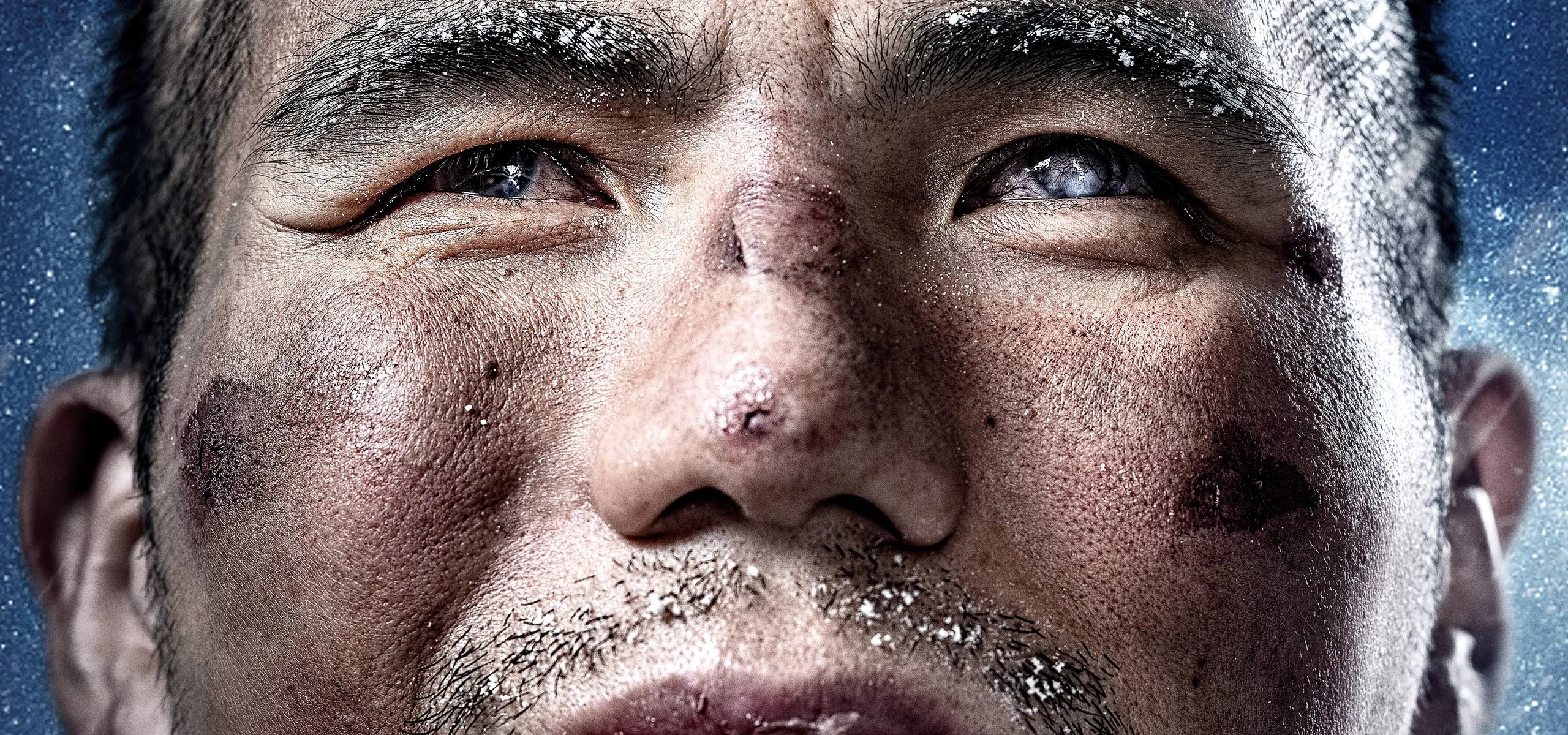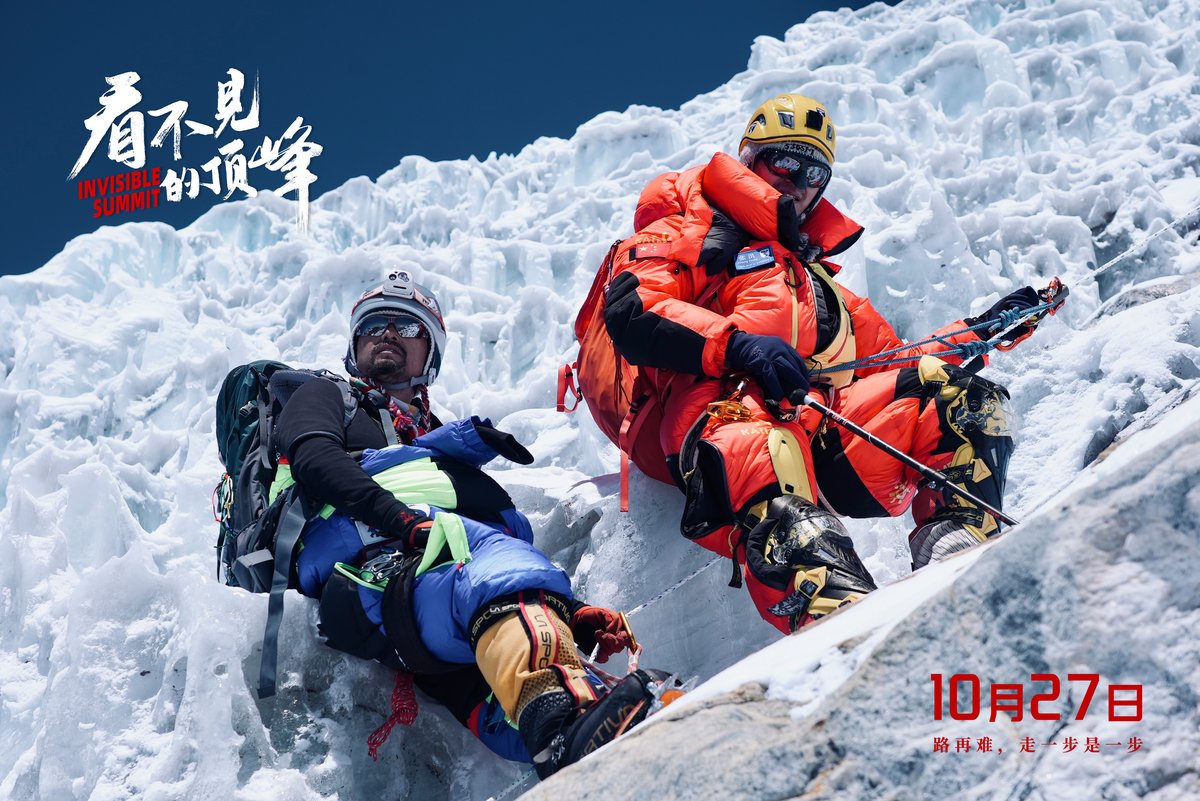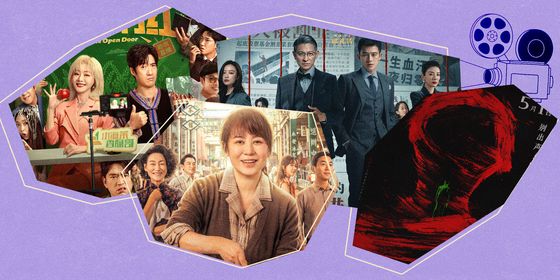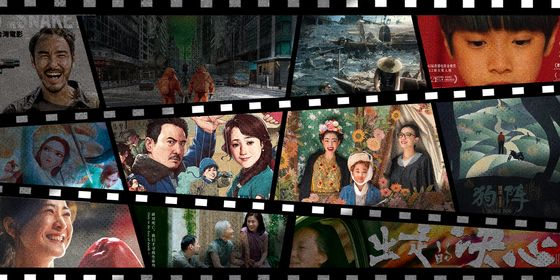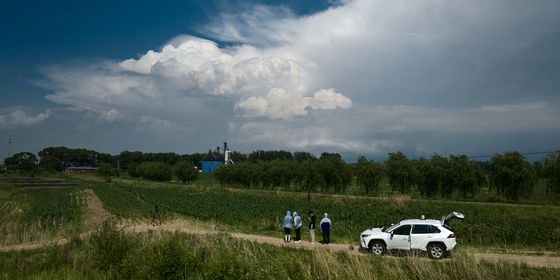The story of the first blind Chinese person to summit the world’s highest mountain makes for a compelling documentary
China’s blind population has struggled to be seen for decades. Despite improvements in regulations that promote the provision of braille and voice broadcasts in public spaces, most visually impaired people are left with few employment opportunities apart from in ubiquitous blind massage parlors or as piano tuners. This all makes Zhang Hong’s epic feat of climbing the world’s tallest peak, captured in new documentary film Invisible Summit, all the more impressive.
Over 89 minutes, Invisible Summit tells the story of how Zhang, once a masseuse by profession, became the first blind Asian person (and only the third blind person globally) to summit Mount Qomolangma (also known as Mount Everest) in 2021. Zhang’s journey to the top is (inevitably) painful, complicated, and awe-inspiring. Yet the most impressive thing about director Fan Lixin’s documentary is the space it gives for the human interactions and relationships that blossom and become strained around Zhang’s all-consuming mission to climb to the top of the world. In fact, Invisible Summit is at its best when it takes the audience away from the immediate danger and drama of Zhang’s ascent up icy cliff faces and across crevasse-filled glaciers on Qomolangma.
Despite some overindulgent footage of the Himalayan scenery and a couple of clunky staged scenes (including a Rocky-esque montage of Zhang training in the gym as disco lights illuminate his sweat-drenched face), this remarkable story is done justice by Fan’s nuanced storytelling.
Zhang’s burning insecurity and ego provide the film’s hook. It is less about the unique danger of climbing to 8,848 meters high without sight (enthralling for a while), but the way Zhang’s blindness drives his mountaineering efforts in conflicting, compelling ways—climbing Qomolangma is less about fervent passion than a determination to validate his own worth to himself, his wife, and son. Climbing the mountain means “I won’t die a worthless loser. I would have accomplished something by the time I go,” Zhang says. It’s a theme he constantly returns to. By doing something extraordinary, he wants to prove he can be a “normal” father to his son and that he is a worthy husband to his wife, Xia Qiong.
Zhang’s father and grandfather were both blind, and Zhang lost his sight when he was 21. Over footage of him climbing stairs in his Lhasa apartment bloc—while wearing a mask to restrict his oxygen intake and weighed down by full mountaineering equipment and a heavy rucksack to simulate his future ascent up Qomolangma—Zhang talks about how he came to understand his father’s insistence on going out into the fields around his village and harvesting crops all year round: “He was also trying to prove himself, so that his family could live with dignity.”
As Zhang pursues his dangerous dream (around 300 people have died climbing Qomolangma), Xia handles the no less impressive task of managing the day-to-day matters of holding their family together. The interactions between the couple echo the relationship between rock climber Alex Honnold and his girlfriend Sanni McCandless in the 2018 documentary Free Solo.
In that film, the relationship is strained by Honnold’s obsession with climbing (without safety equipment) the El Capitan rock face in Yosemite National Park, and at the end the audience wonders whether such a relationship is capable of lasting. While Invisible Summit tells a similar story of one who is perpetually aiming higher and another determined to stay grounded, Xia, who describes herself as a lover of oceans in contrast to Zhang’s mountain obsession, rarely shows the strain in the face of Zhang’s (ultimately selfish) decision to put himself in serious danger.
In fact, Zhang’s perpetually damaged pride, and his trouble trusting in himself and those around him, threaten to smother his most important relationships. Qiangzi, Zhang’s mountaineering guide on Qomolangma, becomes as much Zhang’s emotional guide as his physical one. When Zhang wants to give up during acclimatization training around Qomolangma’s Camp 1, Qiangzi tells him to pull himself together.
Their relationship is, necessarily, unequal, with Zhang relying on his guide for every move he makes. “Place your foot 20 centimeters to the right,” “left foot to three o’clock…” Qiangzi’s relentless instructions sometimes lead to conflicts. At one point, Qiangzi loses patience with Zhang, who is causing a traffic jam of climbers waiting for Zhang to make it up a narrow ice cliff. The movie benefits from taking the time to explore these two climbers’ relationship, and the strong bond they build and then test to the limits on one of Earth’s most dangerous terrains.
Some of the best scenes are simple conversations between Qiangzi and Zhang. One over tea in a restaurant in Lhasa where they talk about the possibility of death, another in a tent where they discuss Zhang’s concept of distance (since he can’t see his destinations). At other points, it indulges in a few too many panning shots of the (admittedly stunning) Qomolangma and the surrounding Himalayas that leave the viewer pining for a return to the human interactions the movie portrays so well. Perhaps these could have been cut in favor of more screen time for Xia, or even exploring how Zhang’s life changed after his summit.
Director Fan has spent years making documentaries in China, but this is the closest he’s come to a blockbuster style. His previous work, Last Train Home (2009), is considered a classic of Chinese documentary-making these days, but that slow-burning, character-focused film lacked the drama of Invisible Summit. This is not always to the credit of the latter, as Li’s talents still lie in his portrayal of human relationships and struggles, rather than on the dramatic set pieces of mountaineering.
After I Am Here (2014), a documentary about reality TV, Invisible Summit represents Fan’s return to focusing on exposing the struggles of marginalized people—albeit this time dressed in the technical bells and whistles offered by funding from major distributors like Migu Video and Taopiaopiao (owned by Alibaba). Clearly, Fan’s storytelling retains its razor-sharp observation of human flaws paired with a tender empathy towards human conditions.
To make 10 million yuan at the box office—a figure Fan earmarked during an interview on the Middle Earth Podcast—Invisible Summit will have to break the mold for similar Chinese films. Few documentaries make it to the box office, and even fewer that relate the lives of people with disabilities. Gushi, Colors in the Dark (2022), about a blind Cantonese Opera singer, made just 120,000 yuan on its release. To the Summit (2021), another Qomolangma documentary about the first Chinese double-leg amputee to reach the summit, earned over 3 million yuan. With Invisible Summit making around 1.35 million yuan in its first four days, there is hope that it will at least surpass these predecessors’ figures, and perhaps mark the beginning of a bright future for China’s documentary-makers.
While most sighted people would be struck by the imposing peaks that tower above them on the way up Qomolangma, or the terrifying ice blocks of the Khumbu Glacier that threaten to crack and break at any moment, Zhang Hong’s memories come from what he heard and felt. He recounted those memories to TWOC in an interview in June 2021: “Vibrations from avalanches.” “Cracking ice.” “Biting wind mixed with snow [that] hit us like waves.”
It is fitting then, that despite the film indulging in perhaps too many long, slow shots of Qomolangma and the surrounding scenery, when Zhang finally makes his way up the last 100 meters to the summit, the cameras go black. The audience only hears the wind and Zhang’s strained breath as he makes his last, painful few steps up—experiencing summiting the world’s highest peak in darkness, just as Zhang did.





